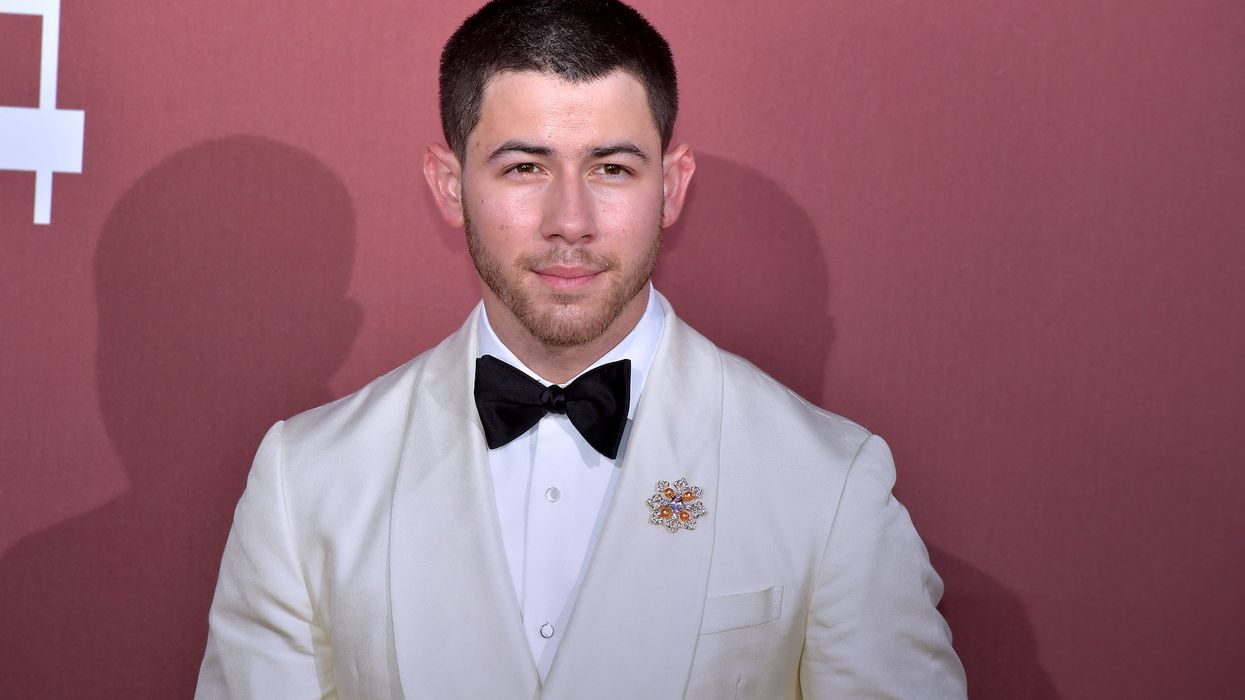“Time is a strange thing/Forgotten a lot but I remember some things,” Bnny’s Jessica Viscius sings on the opening track of her second album, One Million Love Songs. The song is called “Missing,” and she’s recounting the whimsical first stages of falling in love. Her voice starts off breathy, fragile, and slightly hesitant, like she’s finally coming up for air, before the guitars and drums distend and twinkle, creating an entire snowglobe-like world in the span of just under two minutes. Then, as if on cue, the instruments bow out to give Viscius room to utter the quiet part loud: “When I’m with you, I almost forget that he’s missing.”
Viscius sees “Missing” as marking a transition from Bnny’s first album, 2021’s Everything, which she wrote in the wake of the death of her partner and fellow musician Trey Gruber. If that album was a vessel for immense grief, the new one shows how loving again can feel like both muscle memory and nothing short of a miracle.
“Obviously, when I wrote Everything, that was a very dark time in my life,” the Chicago-based musician says. “This album to me is much lighter and sort of a new era of Bnny.” The loss that inspired the first album, she continues, “was sort of rock bottom. Nothing can be as bad as that experience. So although I might be going through a really painful breakup now or something, it’s like I can look at it in a different light. I’ll keep moving on and writing more love songs.”
Loving after loss, trying (and failing) to outrun the past, placing yourself in the perilous position to get hurt again, and again, and again…Viscius explores it all without shame on One Million Love Songs. In conversation and by listening to the record, it’s clear that her capacity for love is massive. “I still remember the first time that it felt real to love again, to feel,” she sings on lead single “Good Stuff.” The song’s chorus feels like a promise to herself, and a thesis statement to the album: “I’m hanging on to my big love.” Over a lead guitar line on the jammy “Something Blue,” she admits that “Lately I’ve been dreaming about everyone I’ve loved.” “I’ve never felt safe like this,” she sings on the dreamy “Changes,” before noting she’s so happy she could scream – and then does.
“What is life without love?” she says when I ask what makes it all worth it for her. “I feel like love is the life force, so it’s worth it to risk everything for love.”
Much has been made of the “lover girl” sensibility online. There are endless arbitrary debates on who can be deemed a “real yearner” versus a “fake” one. They all serve to emphasize pretty much the same point: that the act of unabashedly loving someone can often be severely humbling, if not near-humiliating. It’s certainly not the safest way to operate, if the goal is to keep your dignity fully intact. Viscius has described her new album as “having fun with a broken heart”: “I’ve kind of conceded to the fact that I just write love songs, despite trying to write about other things,” she says. “When you write a love song, it seems so certain and so sure at times, but love is often so fleeting and there are no guarantees in anything. You just have to keep trucking along.”

That lightness on One Million Love Songs extends beyond thematics: Several of the songs on this record are louder, the guitar riffs looser and more blown-out, the rhythms more urgent. Her signature ballads still make appearances with songs like “Sweet,” a waltzy tune that showcases the sly confidence that can pop up in the throes of budding romance: “I’m so sweet/Don’t you wanna get to know me?” Lyrically, Bnny’s songs are direct and uncomplicated. “I don’t really think much about the lyrics, which is maybe why they are so simple and so honest,” she says. “It’s just like how I’m feeling in that moment, in that hour, in that minute I’m writing a particular song. I don’t make voice memos or record things when I’m writing — I’ll know it’s a good song if I remember it the next day.”
Viscius recorded One Million Love Songs over the course of two weeks in Asheville, North Carolina with co-producer Alex Farrar, who she chose as a collaborator in part because of his work with acts like Wednesday and MJ Lenderman. “We’ve got soft pop songs, but then there’s also some rock moments,” she says. Recording in that environment was a “totally novel experience” for Viscius, who writes mostly in isolation, at nighttime, with a beer or two in her bedroom. Bringing those songs to others can be slightly nerve-wracking, she says.
Her bandmates — anchored by her twin sister Alexa on bass, along with Alexa’s husband on guitar and “a drummer, who’s usually revolving” — joined her for about half of the time in Asheville. Alexa, who is also a photographer, shot the album cover for One Million Love Songs — a vibrant, candid photo of Viscius laying on a field backdropped by snowcapped mountains — while the sisters were hiking in Alaska. “I love the connection of the two albums,” Jessica notes. “The first album, Everything, is me shrouded in darkness with my back facing the camera. This one has a lighter feel — I’m relaxed, playing in nature. They tie together in that way.”
The morning of my conversation with Viscius, a piece titled “The Desire Question” is generating discussion in certain social media circles. The essay features more than 60 people answering the same question: “Is it better to desire, or be desired?” I figure Viscius, the self-proclaimed arbiter of love songs, might have some thoughts, so I turn the question to her. “I mean, for art, I think it’s better to desire,” she says. “It makes for better songwriting. In my personal life, it would be nicer to be desired. True, honest, good love is, I think, a mix of the two. Both sides. And that’s why it’s so rare.”
That rare quality might explain why we spend an embarrassingly large fraction of our lives trying to cradle (and maybe suffocate) whatever tenderness we do experience, out of the fear that it might be taken away. Viscius takes us on this journey with her on One Million Love Songs, from the blur of euphoria to disappointment, and the commitment to letting love change your heart even if someone else decides to change their mind.
It’s only fitting that the album ends the way we hate to admit most relationships do. On the defiant and resigned “No One,” Viscius gently plucks a guitar while repeating, “No one loves me anymore.” “It was this moment of self-pity and being like, ‘No one loves me and I’m trying to change and nothing’s working,’” she says. “But in the same way, it was finding acceptance that that’s OK.”






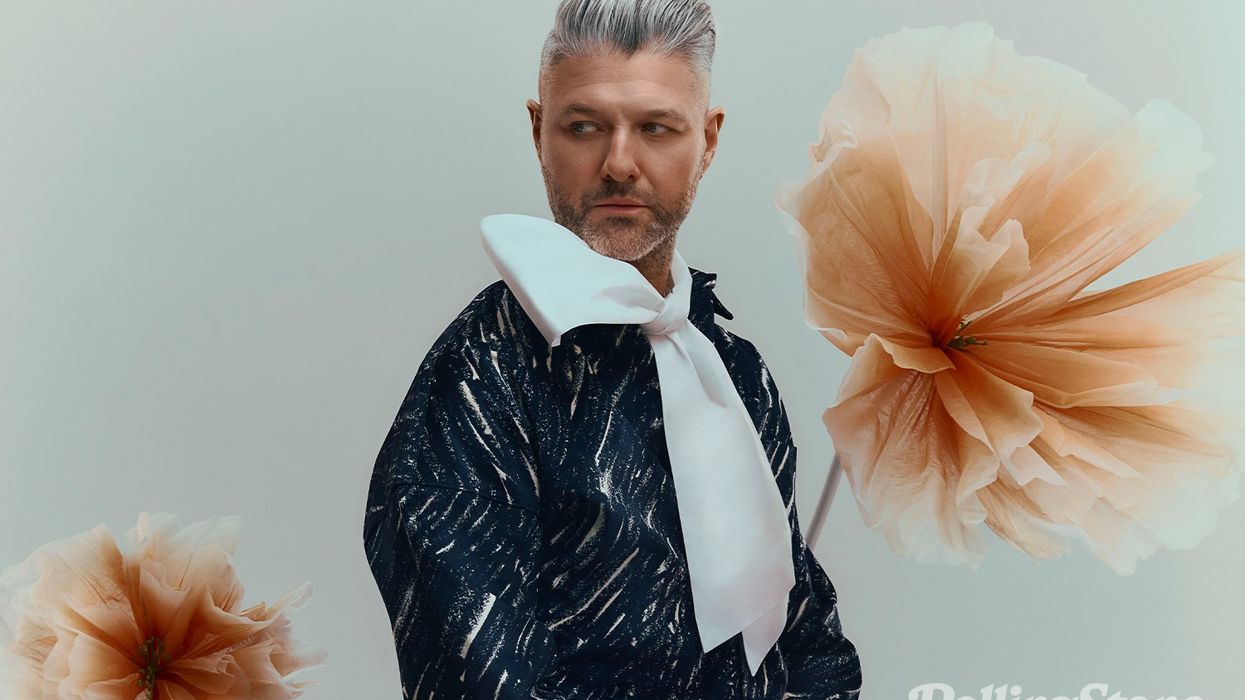
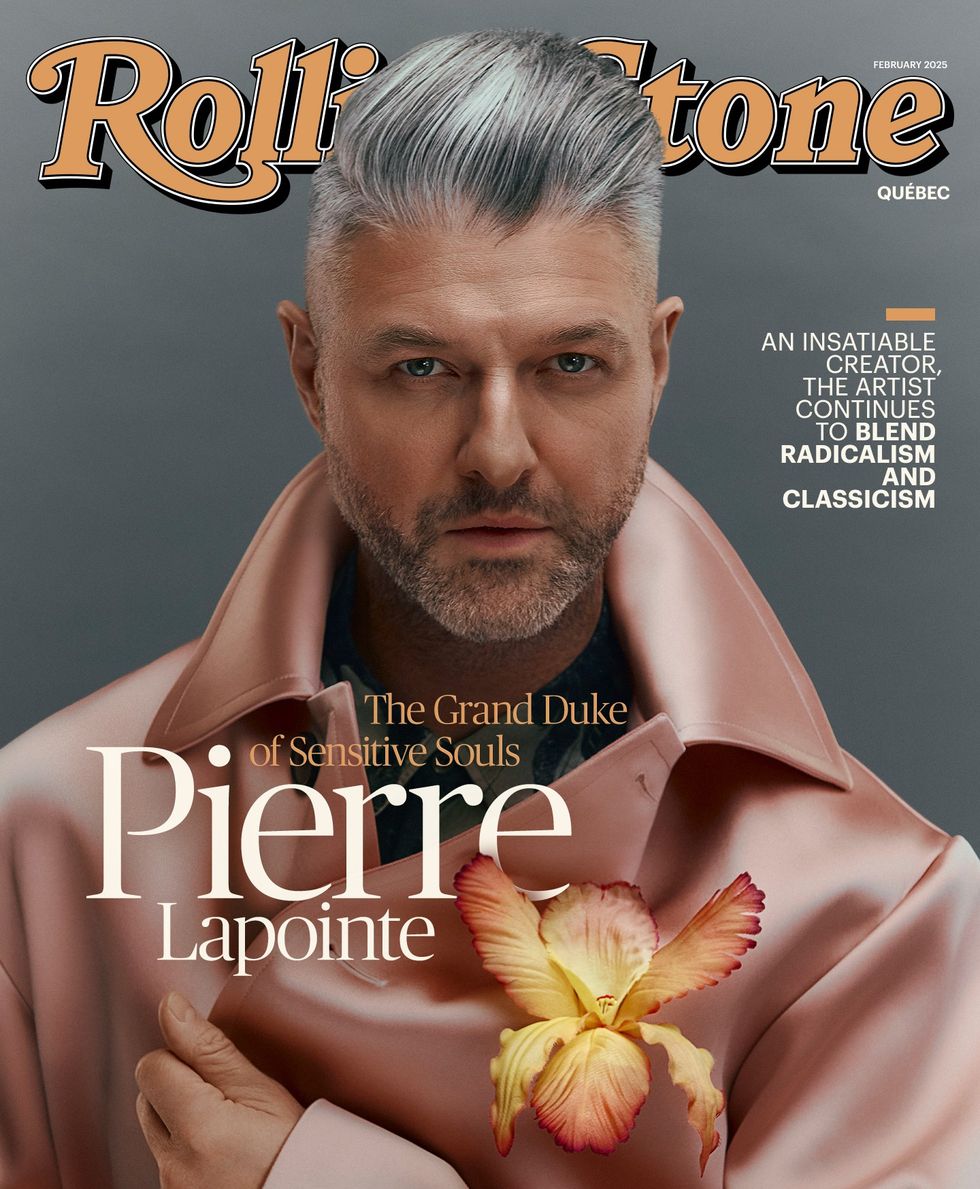 Coat (polyester and wool), shirt (silk), Dries Van Noten, SSENSE.com / Flower (silk), M&S Schmalberg
Coat (polyester and wool), shirt (silk), Dries Van Noten, SSENSE.com / Flower (silk), M&S Schmalberg
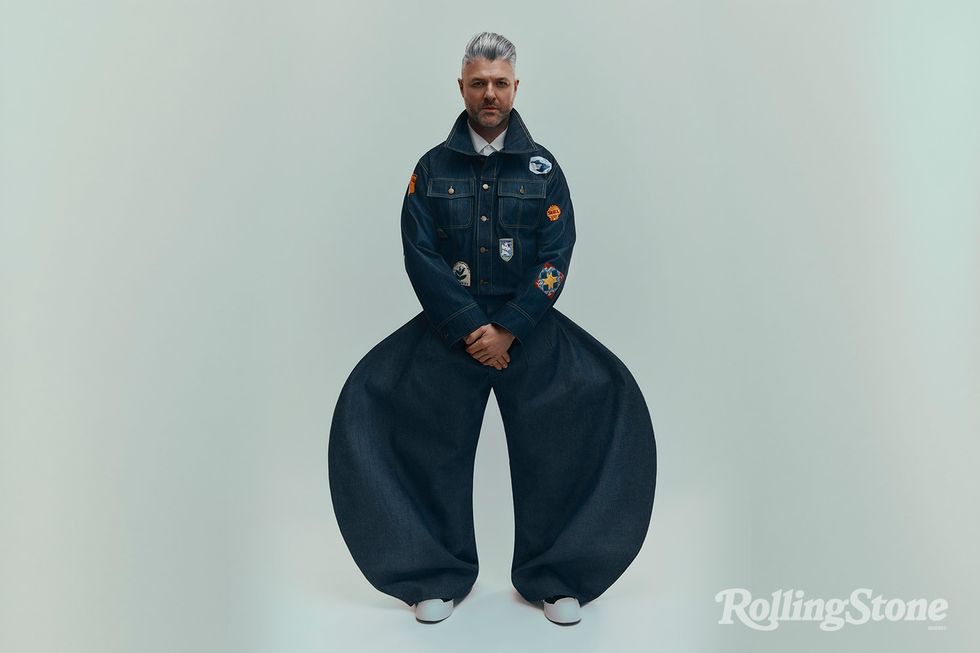 Blouson (denim and hand embroidered patches), WJ Crosson / Shit (polyester), Homme plissé Issey Miyake, Holt Renfrew/Pants from personal collection/ Shoes(canvas), Marni
Blouson (denim and hand embroidered patches), WJ Crosson / Shit (polyester), Homme plissé Issey Miyake, Holt Renfrew/Pants from personal collection/ Shoes(canvas), Marni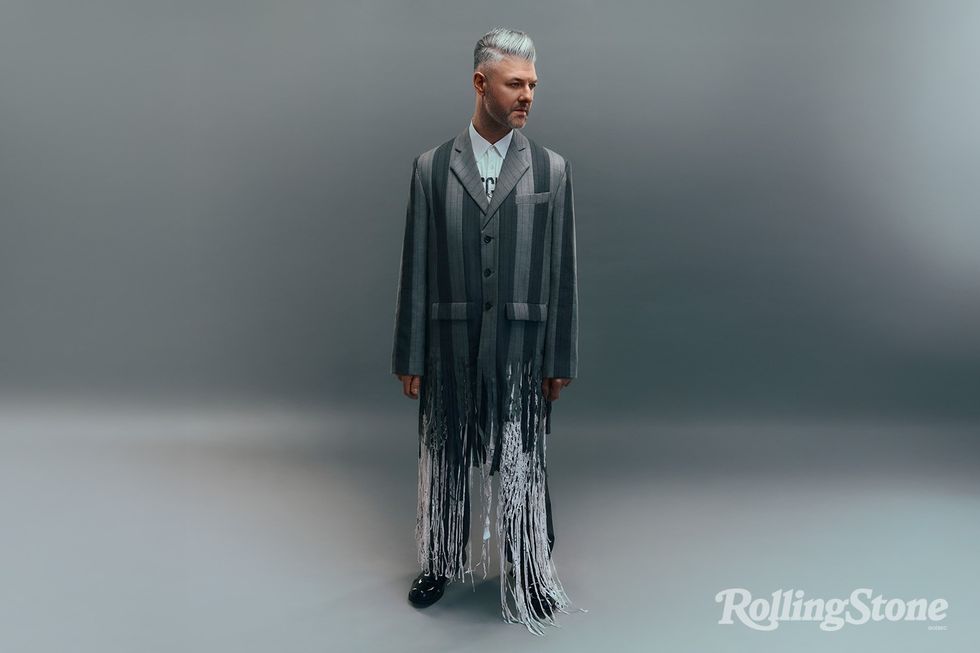 Jacket and pants (virgin wool), shirt (acrylic coated cotton), Moschino / Shoes from Pierre Lapointe's personal collection
Jacket and pants (virgin wool), shirt (acrylic coated cotton), Moschino / Shoes from Pierre Lapointe's personal collection


